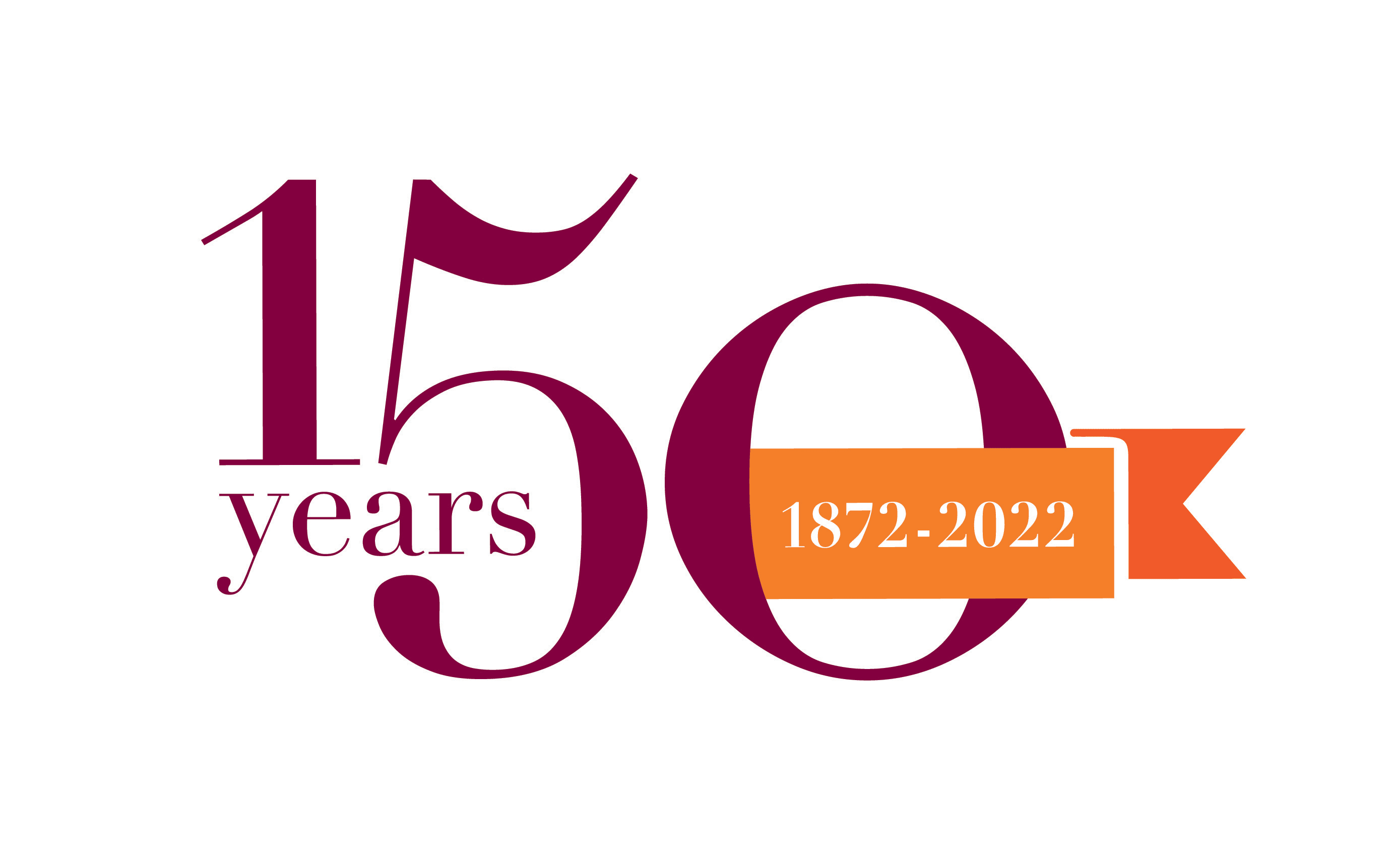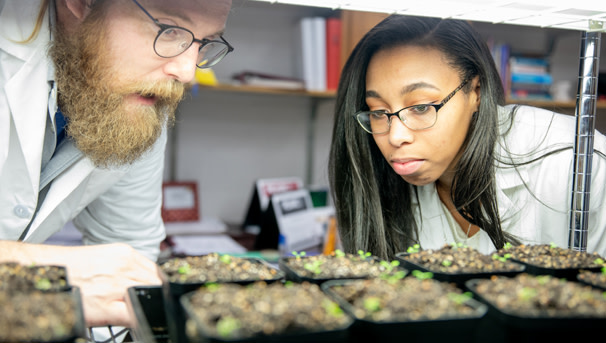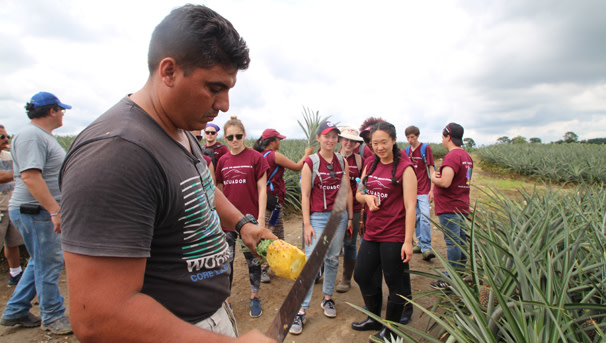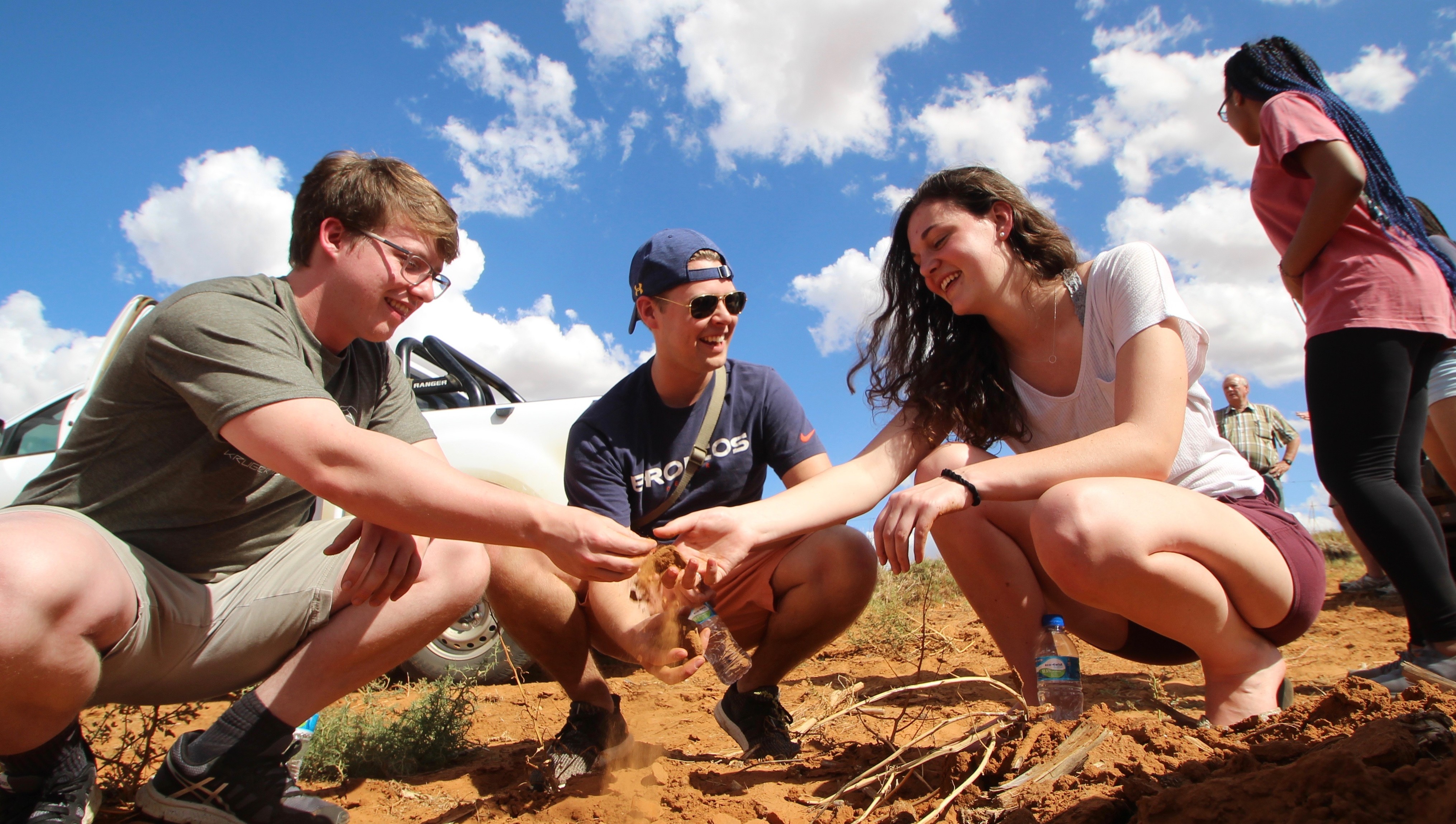Experiential Learning Opportunities in CALS
Experiential Learning Opportunities in the College of Agriculture and Life Sciences bridge a student’s undergraduate education with real-world applications
Students in the College of Agriculture and Life Sciences (CALS) not only have access to top-notch classroom instruction, but an opportunity to experience a rich, hands-on, real-world education through many activities and experiences out in the “field.” The world is our classroom, and every student in CALS has an opportunity to experience and discover their place in it. Your gift today ensures that these experiences are possible for our students today and tomorrow.
Internships:
Internships are one of the best ways for students to get experience in their area of interest, meet people who have been where they are, and make connections with potential future employers.
Undergraduate Research:
Students who participate in undergraduate research get a front seat to cutting edge discovery and the process of problem solving in real world scenarios. They obtain hands-on experience outside of the classroom, learn of new scientific knowledge and advancements, gain transferable skills for their field and future career, get to attend conferences to share their work, and form valuable relationships with faculty, mentors, and other students.
Study Abroad:
Meaningful international engagement opportunities allow faculty and students to serve globally, enrich communities at home and abroad, and develop partnerships to address the most challenging issues faced by society.
Service and Ut Prosim:
There’s no better way to connect classroom learning to real-world experiential learning than through service. The opportunities are available and exciting- whether it is volunteering on a local farm, in a health clinic, or helping start a community garden.
Opportunities outside of the classroom are often at the expense of the student and range from a few hundred dollars to a few thousand dollars, depending on the experience.
For example, support needed for an unpaid internship at a veterinary clinic for a student to gain hands-on experience with companion animals:
TRANSPORTATION: $200
MEALS: $200
TOTAL: $400
An example of support needed for an unpaid internship in a lab on campus studying animal growth and development to maximize the production of high-quality meat:
TRANSPORTATION: $5 a day for gas
HOUSING: $400 per month
MEALS: $60 per week in groceries
TUITION: $2,500 per semester not covered by scholarships
TOTAL: $1,000-$2,500
To support a student's study abroad experience in Australia and New Zealand to learn and experience about agriculture and sustainability, comparing the different aspects of agriculture and the ecosystems between the United States and these respective countries:
TRANSPORTATION: $3,000
MEALS: $300
REGISTRATION FEES: $275
TUITION: $1,187
PROGRAM FEE: $5,400
TOTAL: $10,462
You can help create opportunities for our students beyond the classroom by making a gift. Be a part of making transformational experiences possible for fellow Hokies and witness the difference they can make as they carry out Ut Prosim (That I May Serve) in local communities and around the world.

$15
Orange & Maroon Supporter
Combined with gifts from others, $15 can quickly grow our scholarship fund!
$25
Hokie Helping Hand
Help a student cover the cost of meals during their experience.
$50
Pylon Patron
Help a student cover the cost of a tank of gas for commuting to their internship.
$250
Hokie Service
Help a student register for a conference to present their research.



